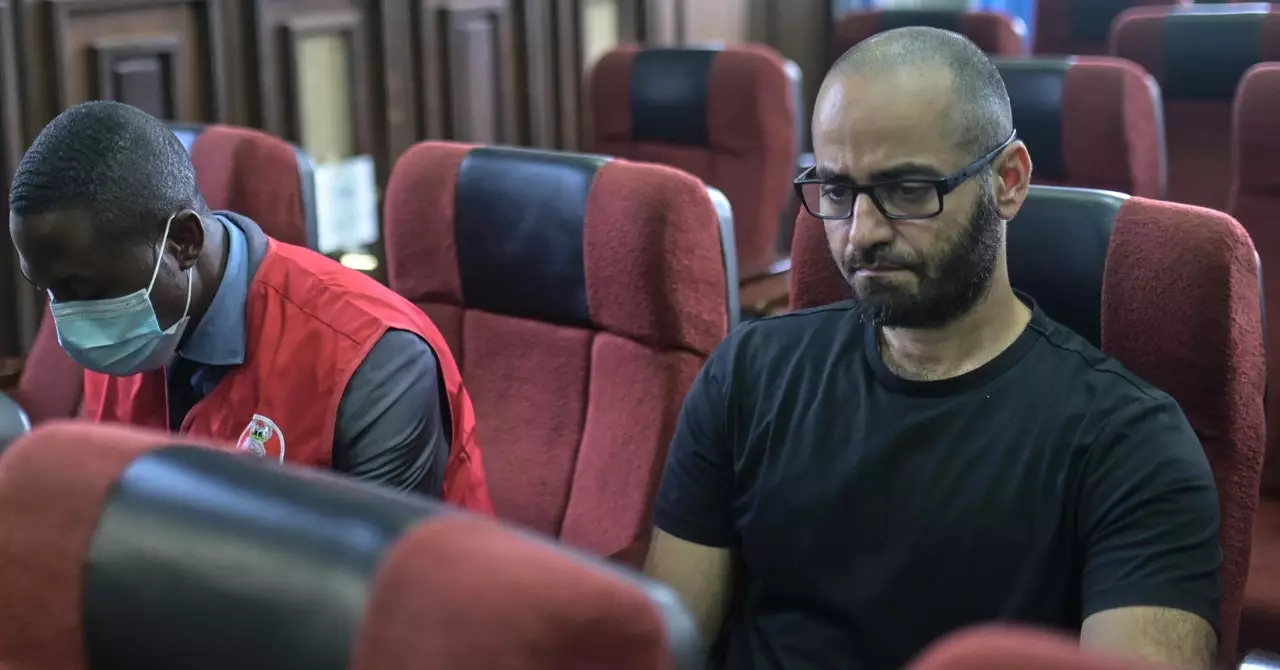In an unexpected and troubling turn of events, a well-known figure in the cryptocurrency world finds himself entangled in a web of legal disputes while trying to assist Nigerian officials with a sensitive issue involving Binance. This individual, who had previously served as a criminal investigator at the IRS, played a pivotal role in pioneering techniques for tracing cryptocurrency transactions. The irony of his predicament cannot be overstated, as he now faces serious charges in Nigeria, including money laundering and tax evasion, all stemming from a governmental invitation to lend his expertise.
Acting on the initiative of Nigerian officials, this investigator, who was later identified as a key executive at Binance, was invited to help resolve a conflict concerning the alleged illegal activities of the exchange. Instead of facilitating a discussion to clarify matters, Gambaryan ended up behind bars, with conditions that have rapidly deteriorated his health, sparking urgent calls for a reassessment of the human cost of this legal debacle.
Recently, a courtroom in Abuja issued a ruling that significantly alters the course of Gambaryan’s situation by dropping the criminal charges against him on medical grounds. This decision, reported by Bloomberg News, arrives in light of increasing pressure from the U.S. government to prioritize Gambaryan’s release. However, despite the ruling, the legal battle is far from over, as Gambaryan remains confined—showcasing a stark disconnect between judicial outcomes and real-world implications.
His journey through Nigeria’s convoluted legal system has remarkably taken a toll on his health. Family members and legal representatives have voiced their deep concerns, citing his struggles with severe back pain necessitating surgical intervention, depicting the grim reality faced by many detained individuals lacking adequate medical treatment.
As news of Gambaryan’s situation spread, recent developments indicate a growing national and international outcry. Notably, members of the U.S. Congress have been vocal in their support, framing Gambaryan’s plight more as a hostage situation than a simple legal issue, thus escalating calls for a high-level diplomatic intervention. Congressional letters directed to the White House articulate a significant concern that has transcended mere legal advocacy, framing it as an issue of human rights and justice.
In tandem with congressional support, several state attorneys general have also joined the call for U.S. governmental intervention. This heightens the focus on Nigeria’s treatment of foreign nationals and interconnected financial practices—notably those surrounding cryptocurrency—remaining at the center of the dialogue. Such a convergence of political will underscores the broader implications of this case for international relations and financial governance.
The Future of Cryptocurrency Regulation in Nigeria
While Gambaryan’s personal health and legal situation remain fronts of immense concern, his case simultaneously raises broader questions about Nigeria’s regulatory framework concerning cryptocurrency. The Nigerian authorities have found themselves grappling with complex relationships with cryptocurrency firms, often oscillating between recognition of the potential economic benefits and concerns over illicit financial activities that threaten their sovereignty and economic stability.
As the Binance case progresses, the implications of how cryptocurrencies are perceived and regulated in Nigeria will likely set precedents for the future regulatory landscape. Gambaryan’s unfortunate involvement exemplifies the precarious position many international professionals may find themselves in when entering complex jurisdictions where regulatory clarity may be elusive.
The unfortunate entanglement of Gambaryan in Nigeria’s legal system serves as a stark reminder of the risks involved in the evolving world of cryptocurrencies. As he fights for his freedom and health, there is a pressing need for governments worldwide to reflect on the treatment of each individual caught in similar precarious situations. Justice should not only be about legal resolutions but must also encompass the humanitarian aspects of any case. Gambaryan’s plight is a call to reevaluate how law enforcement and regulatory authorities operate in a rapidly changing financial landscape, particularly when human lives are at stake.

